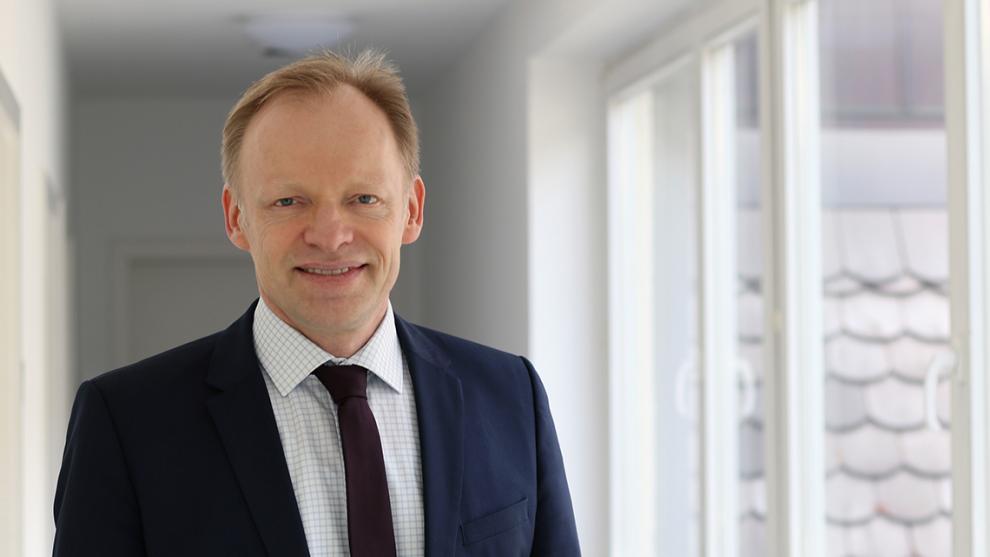ifo Media Center
The ifo Institute invites you to participate in the discussion of interesting economic topics via the Internet. In our ifo Media Center a whole series of remarkable events are available and can be viewed in full length. We also record selected speeches and presentations given by employees or at events and make them available in our Media Center.

ifo Institute Criticizes Pension Commission Report
The ifo Institute has described the results of the Pension Commission as insufficient. “The Commission has clearly shown that the financing of the statutory pension is not secure in the long term. However, it does not draw any further conclusions from this finding,” says Joachim Ragnitz, Managing Director of the ifo Institute’s Dresden Branch. “It leaves the development of solutions to the financing gap to a yet-to-be-established pension advisory board.”
ifo Employment Barometer Plummets (March 2020)
German companies have put the brakes on their personnel planning. The ifo Employment Barometer fell heavily to 93.4 points in March after measuring 98.0 points in February. This is the largest decline since records began in 2002 and the lowest value since January 2010. New hires have ceased.
Allemagne : Effondrement de l'indice de l'emploi établi par l'Institut ifo
Les entreprises allemandes figent leurs prévisions d'effectifs au niveau actuel. Le baromètre de l'emploi de l'Institut ifo s'est dégradé sensiblement, passant de 98,0 points en février à 93,4 points au mois de mars. Il s'agit de la baisse la plus importante depuis que l’on a commencé à mesurer ces valeurs en 2002 ainsi que du niveau le plus bas depuis janvier 2010. Les nouvelles embauches ont été stoppées net.
Allemagne : Effondrement des prévisions ifo en matière d'exportation
Le moral des exportateurs allemands s'est drastiquement assombri. Les prévisions communiquées par l'industrie allemande à l'Institut ifo en matière d'exportations ont reculé au mois de mars de – 1,1 à – 19,8 points. C'est le recul le plus massif jamais mesuré dans l'Allemagne réunifiée et le niveau le plus bas depuis mai 2009. La pandémie du coronavirus freine brutalement le commerce mondial. Les activités logistiques transfrontalières se compliquent. En tant que pays exportateur, l'Allemagne subit cette évolution de plein fouet.
ifo Export Expectations Plummet (March 2020)
Sentiment among German exporters has deteriorated drastically. In March, the ifo Export Expectations in manufacturing decreased from minus 1.1 points to minus 19.8 points. This marks the biggest drop since German reunification and brings the index to its lowest level since May 2009. The coronavirus pandemic is slowing down global trade and cross-border logistics is becoming more difficult. This affects Germany as an exporting nation particularly strongly.
ifo Business Climate Index Collapses (March 2020)
Sentiment among German managers has become extraordinarily dire. The ifo Business Climate Index collapsed from 96.0 points (seasonally adjusted) in February to 86.1 points in March. This is the steepest fall ever recorded since German reunification and the lowest value since July 2009. Companies’ expectations in particular have darkened as never before. Assessments of the current situation have also worsened considerably. The German economy is in shock.
Net recul de l'indice du climat des affaires de l'Institut ifo
Le moral des dirigeants des entreprises allemandes s'est très profondément dégradé. L'indice ifo du climat des affaires a reculé, passant de 96,0 points (valeur corrigée des variations saisonnières) en février à 86,1 points au mois de mars. C'est le recul le plus massif jamais mesuré dans l'Allemagne réunifiée et le niveau le plus bas depuis juillet 2009. Ce sont notamment les attentes des entreprises qui se sont assombries comme jamais auparavant. Mais l'évaluation de la situation actuelle accuse elle-aussi une détérioration notable. L'économie allemande est en état de choc.
Institut info : le coronavirus coûtera plusieurs centaines de milliards d'euros à l'économie allemande
La crise du Covid-19 cause des pertes de production qui coûteront plusieurs centaines de milliards d'euros à l'économie allemande. L'activité partielle et le chômage monteront en flèche et feront peser des contraintes supplémentaires importantes sur les finances de l'État. Ce constat est le résultat de calculs réalisés par l'Institut ifo. « Les coûts éclipseront sans doute tout ce que nous connaissons des crises économiques et des catastrophes naturelles de ces dernières décennies en Allemagne », estime Clemens Fuest, le président de l'Institut ifo. « Suivant le scénario, les activités économiques se contracteront de 7,2 % à 20,6 %, ce qui correspond à un coût global de 255 à 729 milliards d'euro ».
ifo Institute: Corona Will Cost Germany Hundreds of Billions of Euros
The coronavirus will cost Germany’s economy hundreds of billions of euros in production losses, cause short-time work and unemployment to skyrocket, and place a considerable burden on the national budget. This is the finding from the ifo Institute’s current calculations. “The costs will probably exceed everything we have seen from economic crises or natural disasters in Germany in recent decades,” says ifo President Clemens Fuest. “Depending on the scenario, the economy will shrink by 7.2 to 20.6 percentage points. This corresponds to costs of EUR 255 to 729 billion.”
Des économistes veulent des lignes de crédit corona du mécanisme de stabilité
Un certain nombre d'économistes de France et d'autres pays souhaitent utiliser le mécanisme européen de stabilité (MES) pour des lignes de crédit corona accordées aux pays de l'UE. Tous les États membres pourraient utiliser la ligne de crédit rapidement si nécessaire. Le document, dans lequel le président de l'Institut ifo, Clemens Fuest, est impliqué, indique que les sommes devraient être réparties entre les États membres en fonction de la gravité des problèmes dans le secteur de la santé et de l'économie.
Economists Want Corona Credit Lines from the Stability Mechanism
A number of prominent economists from different countries would now like to use the European Stability Mechanism (ESM) for corona credit lines to EU countries. All member states would be able to use the credit line quickly if necessary. The paper, co-authored by ifo President Clemens Fuest, says that the sums should be distributed among the member states in proportion to the severity of the problems in the health system and in the economy.
ifo Institute: German Business Climate in Food Retail Significantly Improved
The ifo Business Climate Index for the food retail sector rose in March, making it one of the very few sectors experiencing positive development. This is the result of a preliminary evaluation of the index. Assessments of the current situation rose to their highest level since German reunification.
ifo Business Climate Index Collapses (preliminary assessment 19 March 2020)
Sentiment among German managers has worsened drastically. The preliminary ifo Business Climate Index plummeted from 96.0 points (seasonally adjusted) in February to 87.7 points in March. This marks the biggest drop since 1991 and brings the index to its lowest level since August 2009. Companies’ expectations in particular have darkened as never before. Assessments of the current situation have also worsened considerably. The German economy is speeding into recession.
Coronavirus Pushes Germany into Recession – Fuest Demands Massive, Targeted Countermeasures
Fighting the coronavirus is pushing Germany into recession. “Forecasts about how deep the recession will be are currently subject to extremely high uncertainty. It is therefore necessary to consider different scenarios. One scenario under consideration at the ifo Institute is highly positive, with economic output of minus 1.5 percent for 2020. However, this takes only minor declines in industry production into account. In a second scenario, which assumes greater cutbacks in production, economic output shrinks by 6 percent,” said ifo President Clemens Fuest in Munich on Thursday.
ifo President Fuest Rejects Helicopter Money for Germany
Clemens Fuest, President of the ifo Institute, rejects direct payments by the government to citizens of the sort planned in the United States. “The US doesn’t have a basic social security system like we do in Germany. Most support available to people on low incomes depends on their being employed. But that is precisely what the current crisis is massively curtailing,” Fuest says.
ifo President Fuest Warns of an Economic Crisis and Calls for a Massive Aid Package
Clemens Fuest, President of the ifo Institute, has spoken out in favor of drastic measures to help the economy in the coronavirus crisis. “We have to prevent the economy from sliding into a downward spiral of collapsing companies, job losses, and panic in the financial sector,” he writes in an article for the German newspaper Handelsblatt. ”The response involves a combination of massive support measures that must be targeted precisely and enacted quickly.”
ifo Institute: German Economists Favor Reduction in Corporate Taxation
Germany should reduce its tax rates for companies. This is the opinion of the majority of economists surveyed for the ifo and Frankfurter Allgemeine Zeitung Economists Panel. Of the 104 economists surveyed, 53 percent agreed with the statement that Germany should follow the example of other countries and reduce corporate taxes. Just under a quarter of the respondents disagreed.
ifo President Fuest Welcomes Scholz and Altmaier’s Economic Package
Clemens Fuest, President of the ifo Institute, has welcomed the package of measures presented by German Finance Minister Olaf Scholz and Economics Minister Peter Altmaier. “The measures point in the right direction. They build on our experience of the 2008 financial crisis, but are adapted to the special circumstances of the current crisis. The focus on liquidity support does justice to this,” Fuest said in Munich on Friday.
ifo Institute: School Closures Must Not Lead to a Learning Hiatus
The ifo Institute has warned of a learning hiatus due to the school closures in Berlin, Lower Saxony, Saarland, and Bavaria. “We must now do everything possible to ensure that the school closures do not result in a complete learning hiatus. We have to think in terms of learning outcomes, because they are the most important thing,” says Ludger Woessmann, Director of the ifo Center for the Economics of Education in Munich. “The learning outcomes achieved determine whether students are well prepared for future challenges. The year 2020 must not go down in the educational history of the children and young people concerned as a lost year.
Le président de l'Institut ifo Clemens Fuest salue les décisions de la BCE
Le président de l'Institut ifo, M. Clemens Fuest, s'est félicité des choix opérés par la Banque centrale européenne (BCE). « Les décisions de la BCE vont dans la bonne direction », a-t-il déclaré à Munich. « Elles visent surtout à prévenir les problèmes de trésorerie que les banques et les petites et moyennes entreprises risquent de rencontrer en raison de la crise en cours. L'extension de la politique d’achat d’obligations en faveur notamment des obligations d’émetteurs privés peut y contribuer, tout comme l'amélioration des conditions de la troisième série d'opérations ciblées de refinancement de long terme (TLTRO III) ».




